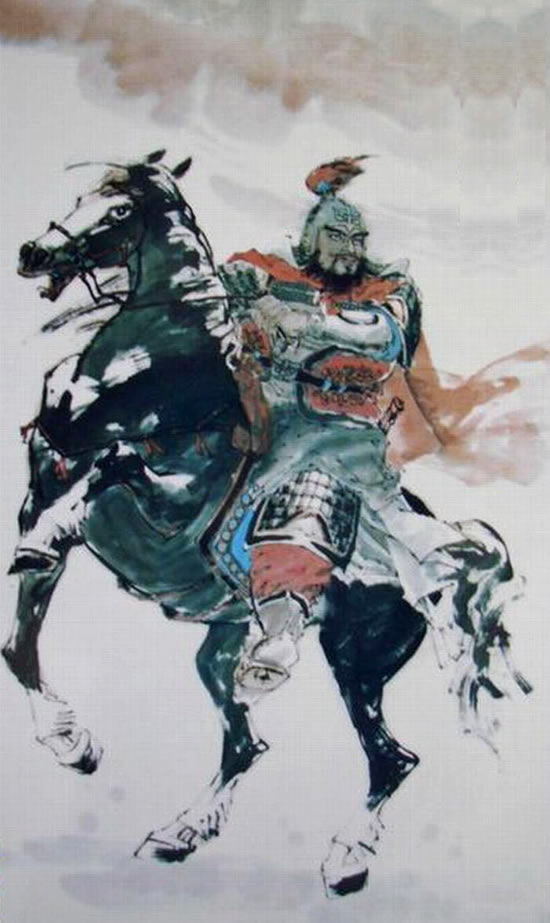 |
| Xiang Yu (Hsiang Yu) |
Xiang Yu was a brilliant general who contributed to the fall of the Qin (Ch’in) dynasty but failed to become the master of China. The unexpected death of the first emperor of the Qin in 210 b.c.e. created a crisis that ended the 10-year-old dynasty.
In the ensuing power struggle the emperor’s chief minister, Li Si (Li Su), and eunuch Zhao Gao (Chao Kao) got rid of the crown prince and Meng Tian (Meng T’ien), the most powerful Qin general, and placed a weak younger brother of the deceased crown prince on the throne. Later Zhao had Li murdered in jail. Since Li had been the architect of the Qin empire, his death spelled its doom.
Meanwhile, popular revolts had broken out throughout China, led by desperate people who could no longer bear the oppression of Qin. The spontaneous peasant rebellions were followed by better-led and organized revolts by the survivors of the royal houses that had been conquered by Qin.
  |
The most notable noble leader was Xiang Yu, whose family had long served as generals of the southern state called Zhu (Ch’u). Xiang resurrected the house of Zhu and elevated one of its members to be king. Survivors of several other states followed suit. Another leader was Liu Bang (Liu Pang), a peasant by birth who had risen to minor office.
In 208 b.c.e. Xiang and Liu joined forces and agreed that whoever first entered the heartland of Qin at Guangzhung (Kwanchung) would be king. Liu achieved that honor in 206 b.c.e. when his forces entered the Qin capital Xianyang (Hsien-yang) and accepted the surrender of the third Qin ruler, thus ending the dynasty.
Liu won widespread respect by not allowing his men to loot, protecting the Qin royal family, reducing taxes, and relaxing the harsh Qin legal code. Two months later Xiang Yu arrived at Xianyang and, breaking the pact with Liu, had the Qin royal family murdered and looted and destroyed the Qin palaces and the imperial library.
Because he was the foremost general, Xiang immediately undertook to create a new political order for China. Instead of continuing the unified empire set up by Qin, he created 19 feudal states, each under a king, with himself ruler of one of them and president of the confederacy of states, heralding a return to the political model of China of 200 years earlier.
Liu Bang was awarded a region called Hanzhung (Han-chung) in northwestern China and became king of Han. The rivalry between Xiang and Liu came to a head when Xiang attempted to have Liu assassinated.
In the ensuing war Xiang won important victories, but his arrogance and cruelty lost him allies and supporters, while Liu won adherents with his generosity and administrative skills. Deserted by his followers, Xiang committed suicide in 202 b.c.e. Liu’s followers proclaimed him emperor of the new Han dynasty.